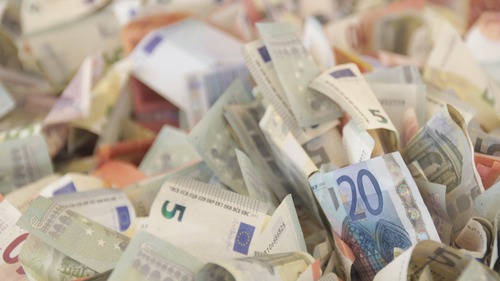75 milliards d’euros d’épargne en 16 semaines
Pendant le confinement, les ménages ont épargné essentiellement sur leur livret A. En mesurant l’écart entre les flux nets de placement et les flux nets de dettes, la Banque de France a pu estimer le montant total de cette épargne à 55 milliards d’euros pendant le confinement, jusqu’à fin avril.
Dans le détail, le montant s’élève à 48,8 milliards de flux nets sur les dépôts et le numéraire et à 4,5 milliards d’euros de désendettement. À cette épargne se sont ajoutés 20 milliards d’euros supplémentaires pendant la période de déconfinement, soit un montant total de 75 milliards d’euros. La Banque de France constate également moins de nouveaux prêts, tant au niveau des crédits immobiliers que des crédits à la consommation.
Une épargne qui représente 3,3 points de produit intérieur brut
Selon les chiffres de l’Observatoire français des conjonctures économiques (OFCE), cette épargne représente 3,3 points de PIB, soit la moitié des 6,6 points perdus par l’économie française pendant cette période.
Si l’intégralité de cette épargne était dépensée, elle pourrait donc réduire les pertes de moitié. De quoi donner matière à réfléchir aux pouvoirs publics, aux établissements bancaires et aux économistes. Ces derniers ont lancé plusieurs pistes, notamment une taxation de l’épargne ou encore la mise en place d’une épargne spécifique. Éric Woerth, président de la commission des Finances de l’Assemblée, a même évoqué la piste d’un « livret C » comme coronavirus, qui pourrait être utilisé pour financer un plan d’investissement pour les entreprises.
À l’heure actuelle, rien n’a encore été décidé et les Français sont toujours dans un schéma d’épargne de précaution. Nombre d’entre eux ont subi d’importantes pertes financières, à commencer par les travailleurs indépendants, et la conjoncture actuelle plus qu’incertaine incite à faire preuve de prudence. D’autant que le pays n’est pas à l’abri d’une seconde vague épidémique, qui pourrait avoir des conséquences économiques catastrophiques.
